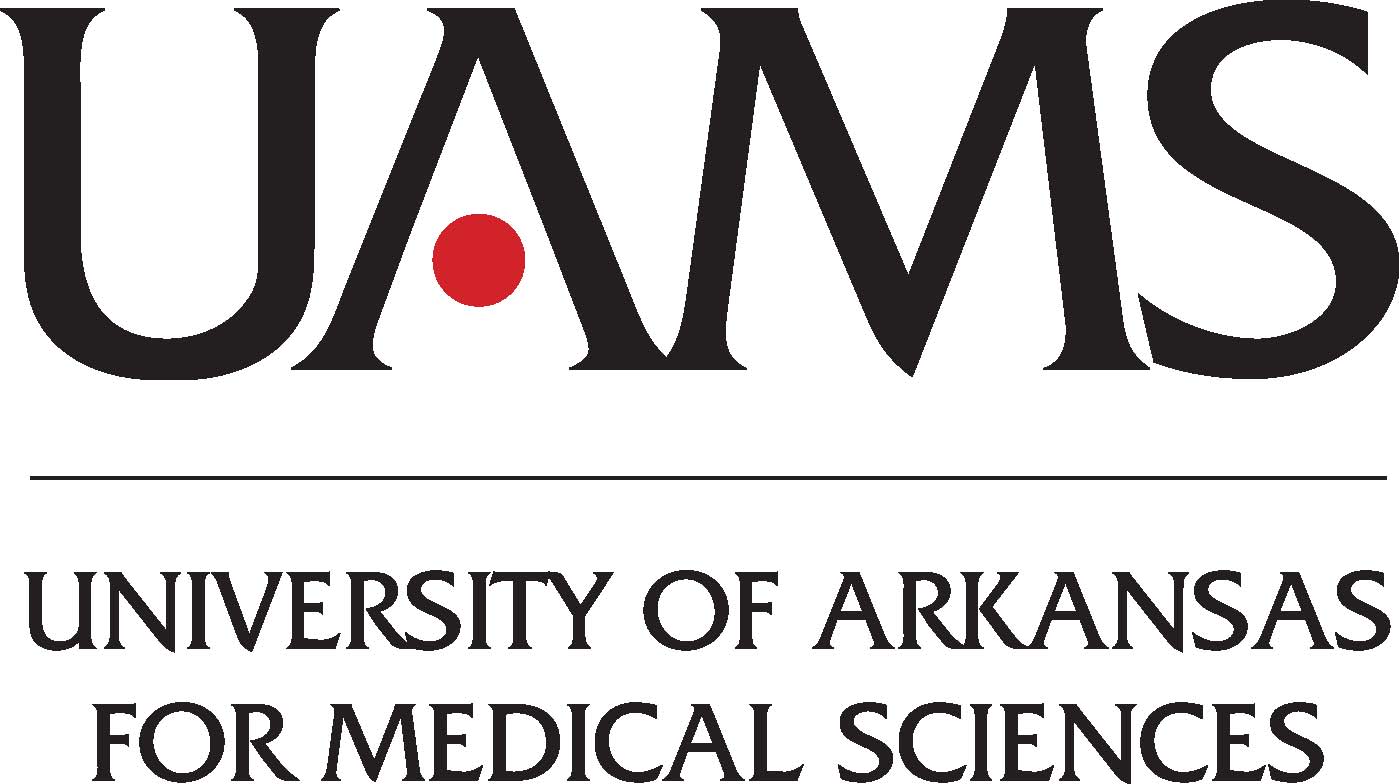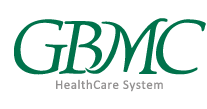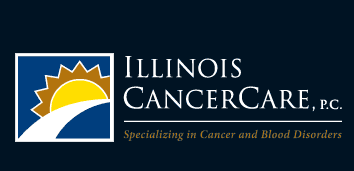Bevacizumab and Intravenous or Intraperitoneal Chemotherapy in Treating Patients With Stage II-III Ovarian Epithelial Cancer, Fallopian Tube Cancer, or Primary Peritoneal Cancer
| Status: | Active, not recruiting |
|---|---|
| Conditions: | Ovarian Cancer, Cancer, Cancer |
| Therapuetic Areas: | Oncology |
| Healthy: | No |
| Age Range: | 18 - Any |
| Updated: | 3/14/2019 |
| Start Date: | August 11, 2009 |
A Phase III Clinical Trial of Bevacizumab With IV Versus IP Chemotherapy in Ovarian, Fallopian Tube and Primary Peritoneal Carcinoma
This randomized phase III trial studies bevacizumab and intravenous (given into a vein)
chemotherapy to see how well they work compared with bevacizumab and intraperitoneal (given
into the abdominal cavity) chemotherapy in treating patients with stage II-III ovarian
epithelial cancer, fallopian tube cancer, or primary peritoneal cancer. Monoclonal
antibodies, such as bevacizumab, can block the ability of tumor cells to grow and spread by
blocking the growth of new blood vessels necessary for tumor growth. Drugs used in
chemotherapy, such as paclitaxel, carboplatin, and cisplatin, work in different ways to stop
the growth of tumor cells, either by killing the cells or by stopping them from dividing. It
is not yet known whether giving bevacizumab together with intravenous chemotherapy is more
effective than giving bevacizumab together with intraperitoneal chemotherapy in treating
patients with ovarian epithelial cancer, fallopian tube cancer, or primary peritoneal cancer.
chemotherapy to see how well they work compared with bevacizumab and intraperitoneal (given
into the abdominal cavity) chemotherapy in treating patients with stage II-III ovarian
epithelial cancer, fallopian tube cancer, or primary peritoneal cancer. Monoclonal
antibodies, such as bevacizumab, can block the ability of tumor cells to grow and spread by
blocking the growth of new blood vessels necessary for tumor growth. Drugs used in
chemotherapy, such as paclitaxel, carboplatin, and cisplatin, work in different ways to stop
the growth of tumor cells, either by killing the cells or by stopping them from dividing. It
is not yet known whether giving bevacizumab together with intravenous chemotherapy is more
effective than giving bevacizumab together with intraperitoneal chemotherapy in treating
patients with ovarian epithelial cancer, fallopian tube cancer, or primary peritoneal cancer.
PRIMARY OBJECTIVES:
I. To determine if one or both of the proposed intraperitoneal chemotherapy regimens improves
the progression-free survival (PFS) event rate compared to standard intravenous chemotherapy
for first-line treatment of patients diagnosed with advanced stage ovarian, peritoneal or
fallopian tube cancer.
II. If both intraperitoneal (IP) regimens significantly improve the PFS event rate compared
to the standard regimen, then a second study objective is to determine whether IP cisplatin
and intravenous (IV) paclitaxel on day one plus IP paclitaxel on day eight improves the PFS
event rate when compared to the IP carboplatin and IV paclitaxel.
SECONDARY OBJECTIVES:
I. To determine if intraperitoneal chemotherapy reduces the overall death rate compared to
standard intravenous chemotherapy.
II. To assess the frequency and severity of adverse events as defined by Common Terminology
Criteria for Adverse Events (CTCAE) version 3.0.
III. To compare the patient-reported outcomes on: Quality of Life (Function Assessment of
Cancer Therapy-Ovarian-Trial Outcome Index [FACT-O-TOI]), Neuropathy (FACT-Gynecologic
Oncology Group/Neurotoxicity [GOG/NTX4] scale), Abdominal discomfort (FACT-GOG/AD scale),
Fatigue (FACIT-Fatigue scale), and Nausea (item from FACT-O-TOI).
IV. To assess the frequency and the reasons for early discontinuation of the study
treatments.
TERTIARY OBJECTIVES:
I. To bank deoxyribonucleic acid (DNA) from whole blood for research and examine the
association between single nucleotide polymorphisms (SNPs) and measures of clinical outcome
including overall survival, progression-free survival and adverse events.
II. To bank archival tumor for research and examine the association between tumor markers and
measures of clinical outcome including overall survival, progression-free survival and
adverse events.
III. Patients will be encouraged to enroll on the companion translational research protocol
(CEM0703 under development).
OUTLINE: Patients are randomized to 1 of 3 treatment arms.
ARM I: Patients receive paclitaxel IV over 1 hour on days 1, 8, and 15 and carboplatin IV
over 30 minutes on day 1. Patients also receive bevacizumab IV over 30-90 minutes on day 1 in
courses 2-6. Treatment repeats every 21 days for 6 courses in the absence of disease
progression or unacceptable toxicity. Patients then receive bevacizumab alone in courses 7-22
in the absence of disease progression or unacceptable toxicity.
ARM II: Patients receive paclitaxel as in Arm I and carboplatin IP on day 1. Patients also
receive bevacizumab as in Arm I. Treatment repeats every 21 days for 6 courses in the absence
of disease progression or unacceptable toxicity. Patients then receive bevacizumab alone as
in Arm I.
ARM III: Patients receive paclitaxel IV over 3 hours on day 1, cisplatin IP on day 2, and
paclitaxel IP on day 8. Patients also receive bevacizumab as in Arm I. Treatment repeats
every 21 days for 6 courses in the absence of disease progression or unacceptable toxicity.
Patients then receive bevacizumab alone as in Arm I.
After completion of study treatment, patients are followed up every 3 months for 2 years,
every 6 months for 3 years, and then annually for 5 years.
I. To determine if one or both of the proposed intraperitoneal chemotherapy regimens improves
the progression-free survival (PFS) event rate compared to standard intravenous chemotherapy
for first-line treatment of patients diagnosed with advanced stage ovarian, peritoneal or
fallopian tube cancer.
II. If both intraperitoneal (IP) regimens significantly improve the PFS event rate compared
to the standard regimen, then a second study objective is to determine whether IP cisplatin
and intravenous (IV) paclitaxel on day one plus IP paclitaxel on day eight improves the PFS
event rate when compared to the IP carboplatin and IV paclitaxel.
SECONDARY OBJECTIVES:
I. To determine if intraperitoneal chemotherapy reduces the overall death rate compared to
standard intravenous chemotherapy.
II. To assess the frequency and severity of adverse events as defined by Common Terminology
Criteria for Adverse Events (CTCAE) version 3.0.
III. To compare the patient-reported outcomes on: Quality of Life (Function Assessment of
Cancer Therapy-Ovarian-Trial Outcome Index [FACT-O-TOI]), Neuropathy (FACT-Gynecologic
Oncology Group/Neurotoxicity [GOG/NTX4] scale), Abdominal discomfort (FACT-GOG/AD scale),
Fatigue (FACIT-Fatigue scale), and Nausea (item from FACT-O-TOI).
IV. To assess the frequency and the reasons for early discontinuation of the study
treatments.
TERTIARY OBJECTIVES:
I. To bank deoxyribonucleic acid (DNA) from whole blood for research and examine the
association between single nucleotide polymorphisms (SNPs) and measures of clinical outcome
including overall survival, progression-free survival and adverse events.
II. To bank archival tumor for research and examine the association between tumor markers and
measures of clinical outcome including overall survival, progression-free survival and
adverse events.
III. Patients will be encouraged to enroll on the companion translational research protocol
(CEM0703 under development).
OUTLINE: Patients are randomized to 1 of 3 treatment arms.
ARM I: Patients receive paclitaxel IV over 1 hour on days 1, 8, and 15 and carboplatin IV
over 30 minutes on day 1. Patients also receive bevacizumab IV over 30-90 minutes on day 1 in
courses 2-6. Treatment repeats every 21 days for 6 courses in the absence of disease
progression or unacceptable toxicity. Patients then receive bevacizumab alone in courses 7-22
in the absence of disease progression or unacceptable toxicity.
ARM II: Patients receive paclitaxel as in Arm I and carboplatin IP on day 1. Patients also
receive bevacizumab as in Arm I. Treatment repeats every 21 days for 6 courses in the absence
of disease progression or unacceptable toxicity. Patients then receive bevacizumab alone as
in Arm I.
ARM III: Patients receive paclitaxel IV over 3 hours on day 1, cisplatin IP on day 2, and
paclitaxel IP on day 8. Patients also receive bevacizumab as in Arm I. Treatment repeats
every 21 days for 6 courses in the absence of disease progression or unacceptable toxicity.
Patients then receive bevacizumab alone as in Arm I.
After completion of study treatment, patients are followed up every 3 months for 2 years,
every 6 months for 3 years, and then annually for 5 years.
Inclusion Criteria:
- Patients with a histologic diagnosis of epithelial ovarian, fallopian tube, or primary
peritoneal carcinoma, stage II, III, or IV with either optimal (=< 1 cm residual
disease) or suboptimal residual disease; in the event of a higher priority Phase III
Gynecologic Oncology Group (GOG) protocol becoming available for suboptimal and/or
stage IV patients, the eligibility of this study will narrow and exclude those
patients at those participating institutions (11/02/2009)
- Note: patients with suboptimal disease/and or stage IV will not be eligible as of
April 1, 2011; they should be enrolled on GOG-0262 (03/14/11)
- All patients must have a procedure for determining diagnosis of epithelial
ovarian, fallopian tube, primary peritoneal, with appropriate tissue for
histologic evaluation; the minimum surgery required is an abdominal surgery
providing tissue for histologic evaluation and establishing and documenting the
primary site and stage, as well as a maximal effort at tumor debulking; if
additional surgery was performed, it should have been in accordance with
appropriate surgery for ovarian or peritoneal carcinoma described in the GOG
Surgical Procedures Manual (https://www.gog.fccc.edu/manuals/pdf/surgman.pdf)
(11/02/2009)(08/16/2010)
- Patients with the following histologic epithelial cell types are eligible: serous
adenocarcinoma, endometrioid adenocarcinoma, mucinous adenocarcinoma, undifferentiated
carcinoma, clear cell adenocarcinoma, mixed epithelial carcinoma, transitional cell
carcinoma, malignant Brenner's Tumor, or adenocarcinoma not otherwise specified
(N.O.S.); however, the histologic features of the tumor must be compatible with a
primary Müllerian epithelial adenocarcinoma; if doubt exists, it is recommended that
the investigator should have the slides reviewed by an independent pathologist prior
to entry; patients may have co-existing endometrial cancer so long as the primary
origin of invasive tumor is ovarian or peritoneal; Note: patients with mucinous, low
grade and clear cell disease are eligible unless there is a higher priority GOG trial
open (11/02/2009) (08/16/2010)
- Absolute neutrophil count (ANC) greater than or equal to 1,500/mcl, equivalent to
Common Terminology Criteria for Adverse Events v3.0 (CTCAE) grade 1; this ANC cannot
have been induced or supported by granulocyte colony stimulating factors
- Platelets greater than or equal to 100,000/mcl
- Creatinine no greater than institutional upper limits of normal (03/29/10)
- Bilirubin less than or equal to 1.5 x upper limit of normal (ULN) (CTCAE grade 1)
- Alanine aminotransferase (ALT), aspartate aminotransferase (AST) less than or equal to
2.5 x ULN (CTCAE grade 1)
- Alkaline phosphatase less than or equal to 2.5 x ULN (CTCAE grade 1)
- Neuropathy (sensory and motor) less than or equal to CTCAE grade 1
- Prothrombin time (PT) such that international normalized ratio (INR) is =< 1.5 x ULN
(or an in-range INR, usually between 2 and 3, if a patient is on a stable dose of
therapeutic warfarin) and a partial thromboplastin time (PTT) =< 1.5 times the upper
limit of normal (heparin, Lovenox or alternative anticoagulants are acceptable); this
corresponds to CTCAE version 3.0 grade 1 one or less (11/02/2009) (03/29/10)
- Patients with a GOG performance status of 0, 1, or 2
- Patients must be entered and treated within 12 weeks of their most recent surgery
performed for the combined purpose of diagnosis, staging and/or cytoreduction; the
first cycle of chemotherapy should not be given until at least seven days after the
most recent major surgery, which allows 4 weeks to have elapsed prior to the first
bevacizumab dose; (placement of venous or peritoneal access devices will be considered
minor surgery) (03/29/10)
- Patients who have met the pre-entry requirements specified
- An approved informed consent and authorization permitting release of personal health
information must be signed by the patient or guardian
- Patients in this trial may receive ovarian estrogen +/- progestin replacement therapy
as indicated at the lowest effective dose(s) for control of menopausal symptoms at any
time, but high dose progestin as an appetite stimulant should be avoided (03/29/10)
Exclusion Criteria:
- Patients with a current diagnosis of borderline epithelial ovarian tumor (formerly
"tumors of low malignant potential") or recurrent invasive epithelial ovarian cancer
treated with surgery only (such as those with stage IA or IB low grade lesions) are
not eligible; patients with a prior diagnosis of a borderline tumor that was
surgically resected and who subsequently develop an unrelated, new invasive epithelial
ovarian or peritoneal primary cancer are eligible, provided that they have not
received prior chemotherapy for any ovarian tumor
- Patients with a history of other invasive malignancies, with the exception of
non-melanoma skin cancer and other specific malignancies are excluded if there is any
evidence of the other malignancy being present within the last five years; patients
are also excluded if their previous cancer treatment contraindicates this protocol
therapy (11/02/2009)
- Patients who have received prior radiotherapy to any portion of the abdominal cavity
or pelvis are excluded; prior radiation for localized cancer of the breast, head and
neck, or skin is permitted, provided that it was completed more than three years prior
to registration, and the patient remains free of recurrent or metastatic disease
- Patients who have received prior chemotherapy for any abdominal or pelvic tumor
including neo-adjuvant chemotherapy for their ovarian or primary peritoneal cancer are
excluded; patients may have received prior adjuvant chemotherapy for localized breast
cancer, provided that it was completed more than three years prior to registration,
and that the patient remains free of recurrent or metastatic disease
- Patients who have received any targeted therapy (including but not limited to
vaccines, antibodies, tyrosine kinase inhibitors) or hormonal therapy for management
of their epithelial ovarian or peritoneal primary cancer
- Patients with synchronous primary endometrial cancer, or a past history of primary
endometrial cancer, are excluded, unless all of the following conditions are met:
stage not greater than IB; no more than superficial myometrial invasion, without
vascular or lymphatic invasion; no poorly differentiated subtypes, including papillary
serous, clear cell or other FIGO grade 3 lesions
- Patients with acute hepatitis or active infection that requires parenteral antibiotics
- Patients with serious non-healing wound, ulcer, or bone fracture; this includes
history of abdominal fistula, gastrointestinal perforation or intra-abdominal abscess
within 28 days; patients with granulating incisions healing by secondary intention
with no evidence of fascial dehiscence or infection are eligible but require weekly
wound examinations
- Patients with active bleeding or pathologic conditions that carry high risk of
bleeding, such as known bleeding disorder, coagulopathy, or tumor involving major
vessels
- Patients with history or evidence upon physical examination of major central nervous
system (CNS) disease (for example: primary brain tumor, metastatic cancer in the
brain, seizures not controlled with standard medical therapy, any brain metastases, or
history of cerebrovascular accident [CVA, stroke], transient ischemic attack [TIA] or
subarachnoid hemorrhage within six months of the first date of treatment on this
study) (11/02/2009) (03/29/10)
- Patients with clinically significant cardiovascular disease; this includes:
- Uncontrolled hypertension, defined as systolic > 150 mm Hg or diastolic > 90 mmHg
- Myocardial infarction or unstable angina < 6 months prior to registration
- New York Heart Association (NYHA) grade II or greater congestive heart failure
- Serious cardiac arrhythmia requiring medication; this does not include
asymptomatic atrial fibrillation with controlled ventricular rate, or past
history of supraventricular tachycardia controlled with medications and that is
asymptomatic (03/29/10)
- CTCAE grade 2 or greater peripheral vascular disease (at least brief (< 24 hrs)
episodes of ischemia managed non-surgically and without permanent deficit)
- Patients with known hypersensitivity to Chinese hamster ovary cell products or other
recombinant human or humanized antibodies; patients with known allergy to Cremophor or
polysorbate 80
- Patients with clinically significant proteinuria; urine protein should be screened by
urine protein-creatinine ratio (UPCR); patients must have a UPCR < 1.0 to allow
participation in the study
- Patients with or with anticipation of invasive procedures as defined below:
- Major surgical procedure, open biopsy or significant traumatic injury within 28
days prior to the first date of bevacizumab therapy (cycle 2)
- Major surgical procedure anticipated during the course of the study; this
includes, but is not limited to abdominal surgery (laparotomy or laparoscopy)
prior to disease progression, such as colostomy or enterostomy reversal, interval
or secondary cytoreductive surgery, or second look surgery
- Core biopsy, within 7 days prior to the first date of bevacizumab therapy (cycle
2)
- Patients with GOG performance grade of 3 or 4
- Patients who are pregnant or nursing; patients of childbearing potential must agree to
use contraceptive measures during study therapy and for at least six months after
completion of bevacizumab therapy
- Patients who have received prior therapy with any anti-vascular endothelial growth
factor (VEGF) drug, including bevacizumab
- Patients with clinical symptoms or signs of gastrointestinal obstruction and/ or those
who require parenteral hydration and/or nutrition; patients with history or current
diagnosis of inflammatory bowel disease are not eligible (12/20/10)
- Patients with medical history or conditions not otherwise previously specified which
in the opinion of the investigator should exclude participation in this study;
examples of this would be: persistent gastrointestinal symptoms resulting from
clostridia difficile enterocolitis or bowel surgery which may increase
gastrointestinal toxicity from bevacizumab; or hearing loss or neuropathy which would
prevent tolerance to cisplatin, and paclitaxel administration; the investigator should
feel free to consult the Study Chair or Study Co-Chairs for uncertainty in this regard
(12/20/10)
- Patients with metastatic tumor in the parenchyma of the liver or lungs with proximity
to large vessels which could make the patient as high risk of lethal hemorrhage during
treatment with bevacizumab (i.e. hemoptysis, liver rupture) (11/02/2009)
We found this trial at
504
sites
529 West Markham Street
Little Rock, Arkansas 72205
Little Rock, Arkansas 72205
(501) 686-7000

University of Arkansas for Medical Sciences The University of Arkansas for Medical Sciences (UAMS) in...
Click here to add this to my saved trials
1201 Camino de Salud Northeast
Albuquerque, New Mexico 87131
Albuquerque, New Mexico 87131
(505) 272-4946

University of New Mexico Cancer Center It’s been 40 years since the New Mexico State...
Click here to add this to my saved trials
Harold Alfond Center for Cancer Care MaineGeneral's Harold Alfond Center for Cancer Care (HACCC) is...
Click here to add this to my saved trials
Brigham and Women's Hosp Boston’s Brigham and Women’s Hospital (BWH) is an international leader in...
Click here to add this to my saved trials
Beth Israel Deaconess Medical Center Beth Israel Deaconess Medical Center (BIDMC) is one of the...
Click here to add this to my saved trials
Tufts Medical Center Tufts Medical Center is an internationally-respected academic medical center – a teaching...
Click here to add this to my saved trials
Click here to add this to my saved trials
Roswell Park Cancer Institute Welcome to Roswell Park Cancer Institute (RPCI), America's first cancer center...
Click here to add this to my saved trials
1300 Jefferson Park Avenue
Charlottesville, Virginia 22908
Charlottesville, Virginia 22908
434-243-6784

University of Virginia Cancer Center We are fortunate in having state of the art clinical...
Click here to add this to my saved trials
City of Hope Comprehensive Cancer Center City of Hope is a leading research and treatment...
Click here to add this to my saved trials
Hurley Medical Center From its founding in 1908, Hurley Medical Center has devoted itself to...
Click here to add this to my saved trials
Click here to add this to my saved trials
Brooke Army Medical Center Brooke Army Medical Center (BAMC) is the Flagship of Army Medicine!...
Click here to add this to my saved trials
University of Mississippi Medical Center The University of Mississippi Medical Center, located in Jackson, is...
Click here to add this to my saved trials
Bronson Methodist Hospital Our healthcare system serves patients and families throughout southwest Michigan and northern...
Click here to add this to my saved trials
West Michigan Cancer Center In 1994, Borgess Health Alliance and Bronson Healthcare Group opened the...
Click here to add this to my saved trials
North Shore University Hospital North Shore-LIJ Health System includes 16 award-winning hospitals and nearly 400...
Click here to add this to my saved trials
401 College Street
Richmond, Virginia 23298
Richmond, Virginia 23298
(804) 828-0450

Virginia Commonwealth University Massey Cancer Center Founded in 1974, VCU Massey Cancer Center is a...
Click here to add this to my saved trials
Click here to add this to my saved trials
Click here to add this to my saved trials
1100 Fairview Avenue North
Seattle, Washington 98109
Seattle, Washington 98109
(206) 667-5000

Fred Hutchinson Cancer Research Center At Fred Hutchinson Cancer Research Center, our interdisciplinary teams of...
Click here to add this to my saved trials
Seattle Cancer Care Alliance Seattle Cancer Care Alliance (SCCA) is a cancer treatment center that...
Click here to add this to my saved trials
Avera Cancer Institute Avera, the health ministry of the Benedictine and Presentation Sisters, is a...
Click here to add this to my saved trials
601 South Sherman Street
Spokane, Washington 99202
Spokane, Washington 99202
(509) 228-1000

Cancer Care Northwest - Spokane South Cancer Care Northwest is the Inland Northwest’s premier cancer...
Click here to add this to my saved trials
Click here to add this to my saved trials
Click here to add this to my saved trials
Abington Memorial Hospital Abington Memorial Hospital (AMH) is a 665-bed, regional referral center and teaching...
Click here to add this to my saved trials
Click here to add this to my saved trials
Click here to add this to my saved trials
Click here to add this to my saved trials
Click here to add this to my saved trials
Click here to add this to my saved trials
Click here to add this to my saved trials
Click here to add this to my saved trials
Click here to add this to my saved trials
Click here to add this to my saved trials
AnMedical Health Cancer Center Cancer is the general term for a group of more than...
Click here to add this to my saved trials
Saint Joseph Mercy Hospital St. Joseph Mercy Ann Arbor Hospital is a 537-bed teaching hospital...
Click here to add this to my saved trials
Click here to add this to my saved trials
Click here to add this to my saved trials
Click here to add this to my saved trials
Randolph Hospital Since 1932, Randolph Hospital has been fortunate to employ dedicated and loyal personnel...
Click here to add this to my saved trials
Click here to add this to my saved trials
Northside Hospital Northside Hospital-Atlanta (in Sandy Springs) opened in 1970. The original facility had 250...
Click here to add this to my saved trials
Click here to add this to my saved trials
University of Colorado Hospital, Site Top medical professionals, superior medicine and progressive change make University...
Click here to add this to my saved trials
Click here to add this to my saved trials
Sinai Hospital of Baltimore Sinai Hospital of Baltimore provides a broad array of high-quality, cost-effective...
Click here to add this to my saved trials
Greater Baltimore Medical Center The 255-bed medical center (acute and sub-acute care) is located on...
Click here to add this to my saved trials
401 North Broadway
Baltimore, Maryland 21287
Baltimore, Maryland 21287
410-955-5000

Johns Hopkins University-Sidney Kimmel Cancer Center The name Johns Hopkins has become synonymous with excellence...
Click here to add this to my saved trials
Eastern Maine Medical Center Located in Bangor, Eastern Maine Medical Center (EMMC) serves communities throughout...
Click here to add this to my saved trials
Summa Barberton Hospital Summa Barberton Hospital is a full member of Summa Health System and...
Click here to add this to my saved trials
Click here to add this to my saved trials
Click here to add this to my saved trials
Bronson Battle Creek As a proud member of the Battle Creek community, we believe everyone...
Click here to add this to my saved trials
Mary Rutan Hospital The hospital was endowed by the sale of a farm in Ridgeway...
Click here to add this to my saved trials
Click here to add this to my saved trials
Click here to add this to my saved trials
8901 Rockville Pike
Bethesda, Maryland 20889
Bethesda, Maryland 20889
(301) 295-4000

Walter Reed National Military Medical Center The Walter Reed National Military Medical Center is one...
Click here to add this to my saved trials
Click here to add this to my saved trials
Click here to add this to my saved trials
Click here to add this to my saved trials
Click here to add this to my saved trials
Click here to add this to my saved trials
Click here to add this to my saved trials
Saint Vincent Healthcare The Sisters of Charity of Leavenworth, Kansas, founded St. Vincent Healthcare in...
Click here to add this to my saved trials
Click here to add this to my saved trials
Click here to add this to my saved trials
Illinois CancerCare-Bloomington Illinois CancerCare, P.C. is a comprehensive practice treating patients withcancer andblood diseases. Our...
Click here to add this to my saved trials
Dana-Farber Cancer Institute Since it’s founding in 1947, Dana-Farber has been committed to providing adults...
Click here to add this to my saved trials
Massachusetts General Hospital Cancer Center An integral part of one of the world
Click here to add this to my saved trials
Bozeman Deaconess Hospital Bozeman Deaconess Hospital is a Joint Commission certified, licensed Level III trauma...
Click here to add this to my saved trials
Click here to add this to my saved trials
Click here to add this to my saved trials
Click here to add this to my saved trials
Click here to add this to my saved trials
Click here to add this to my saved trials
Click here to add this to my saved trials
Click here to add this to my saved trials
Click here to add this to my saved trials
Click here to add this to my saved trials
Fairview Ridges Hospital Fairview Ridges Hospital is a 150-bed, Level III Trauma Care facility, offering...
Click here to add this to my saved trials
400 South Clark Street
Butte, Montana 59701
Butte, Montana 59701
406-723-2500

Saint James Community Hospital and Cancer Treatment Center St. James Healthcare has played an important...
Click here to add this to my saved trials
Click here to add this to my saved trials
Illinois CancerCare - Canton Illinois CancerCare is one of the largest private oncology and hematology...
Click here to add this to my saved trials
Click here to add this to my saved trials
Aultman Health Foundation The Aultman Foundation will raise and administer funds in order to support...
Click here to add this to my saved trials
Click here to add this to my saved trials
Illinois CancerCare - Carthage Illinois CancerCare, P.C. is a comprehensive practice treating patients withcancer andblood...
Click here to add this to my saved trials
Memorial Hospital Memorial Hospital is a vital force in establishing and maintaining the well-being of...
Click here to add this to my saved trials
Rocky Mountain Oncology Rocky Mountain Oncology Center is a spacious, comfortable, state-of-the-art 19,000 square foot...
Click here to add this to my saved trials
Cancer Center of Kansas, PA - Chanute Dr. H.E. Hynes founded Cancer Center of Kansas,...
Click here to add this to my saved trials
Click here to add this to my saved trials
171 Ashley Avenue
Charleston, South Carolina 29425
Charleston, South Carolina 29425
843-792-1414

Medical University of South Carolina The Medical University of South Carolina (MUSC) has grown from...
Click here to add this to my saved trials
Click here to add this to my saved trials
Saint Luke's Hospital St. Luke's Hospital, located in Chesterfield, Missouri, is a regional healthcare provider...
Click here to add this to my saved trials
Rush University Medical Center Rush University Medical Center encompasses a 664-bed hospital serving adults and...
Click here to add this to my saved trials
Click here to add this to my saved trials
Click here to add this to my saved trials
5841 S Maryland Ave
Chicago, Illinois 60637
Chicago, Illinois 60637
1-773-702-6180

University of Chicago Comprehensive Cancer Center The University of Chicago Comprehensive Cancer Center (UCCCC) is...
Click here to add this to my saved trials
Adena Regional Medical Center Since 1895, Adena Health System has remained focused on its commitment...
Click here to add this to my saved trials








































